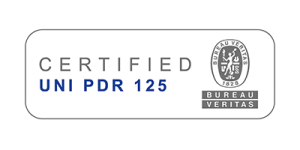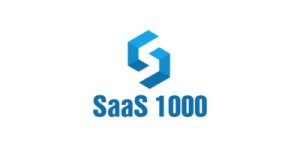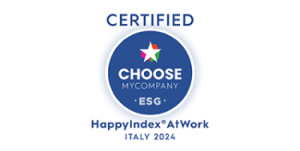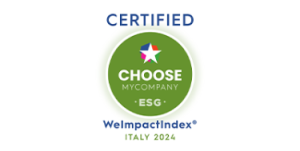
Re-inventing remote education during Covid-19
Almost three months have passed since many countries declared the state of emergency with the consequent imposition of mandatory quarantine on whole territories. In a short time, the COVID-19 pandemic led to the forced stop of various activities, including commercial and school activities and sparked an extraordinary response from the entire system.
With the aim of reducing the social and economic impact of Coronavirus through innovative solutions and services, many initiatives of digital solidarity were born from companies, startups and associations that intend to promote digitalisation.
In this context, we began to think on how we could bring value in the current lockdown situation, not only to our employees and customers, but also to students and the education system at large.
Promoting innovation and fostering new professional skills
MailUp Group operates in a global digital context in continuous evolution and change. Staying competitive in today’s market means knowing how to be innovative, get out of the box and keep up-to-date. To do this, a culture that promotes continuous learning is fundamental. For this reason, as a company we care very much for the education of young generations.
To contribute to this educational cause during the quarantine, we organized a completely remote Project Work in collaboration with the J. Torriani Institute of Higher Education in Cremona, Italy.
During a two-hour session, students worked in groups with the aim of identifying the correct series of steps to create a responsive Telegram bot, under the expert lead of our Developer Advocate and Tech Blog coordinator Paolo Ferretti.
This project represented an alternative way for high school students to learn something new and for us to support our local community during harsh times. Being in service of our community while encouraging and fostering talents brings enormous value to companies, especially those operating in a digital sector like ours. The market is constantly evolving and requires digital transformation-proof processes, roles and skills: today’s young people will cover key roles within tomorrow’s companies. Just think of profiles such as Data Scientist, UX Designer, Cloud Architect, which did not exist until a few years ago.
Stimulating young people to keep up with digitalisation and to exploit new technologies to build thoroughly innovative and dynamic career paths is a key goal for us. Its benefits will be crucial not only for our organisation in the near future but also for the growth of our country.
Project rationale
Within the People & Culture team we frequently collaborate with schools and universities to support young people in taking their first steps in their careers. We do so by sharing our expertise within a dynamic and ever-growing international context and by offering technological know-how through our colleagues’ testimonials. With the closure of school buildings, promoting these initiatives has turned into a real challenge.
As People Engagement Specialist at MailUp Group, I have worked frequently with the Torriani Institute in Cremona in organising such educational sessions. At the end of March this year, I shared an idea with its IT teachers: why not work together to go beyond standard lessons, devising a different way of learning online based on the needs of the classes and the technical expertise that MailUp Group can offer?
The teachers welcomed our request with great openness and enthusiasm. After a series of brainstorming video calls, with the critical involvement and support of Paolo Ferretti, our Group’s Developer Advocate, we structured our first fully remote Project Work: “Developing a Telegram bot – Managing emergency situations from home by improving team communication”. This pilot project was addressed to a fourth year class of computer science from the Torriani Institute.
In the weeks preceding the project, teachers shared a preview of the Project Work with the students, anticipating the topic and organising an introductory lesson on Telegram bot technology.
Getting to work
At 10.00 on Wednesday 6 May, through a Google Meet link previously shared with the class, our virtual classroom filled with 28 people including teachers, students and Paolo.
After welcoming the students and briefly presenting our company, Paolo introduced them to the rules of the Project Work:
- Everyone must have a role
- Each role must have specific tasks
- The bot must be developed and tested in 6 months tops
Beside being educational, the project was above all meant to make students live an experience close to that of being in a real-life technical team – a sort of role play! The roles presented and illustrated to the students were in fact those actually present within our Development teams: Product Owner, Team Leader and Software Developer.
At a first introduction, students were divided into 5 groups and were given the link to access the Collaborative Project Card.
Subsequently, virtual classrooms went from one to six: each group worked within a separate Meet space, with the presence of a moderator (a teacher or myself), while Paolo entered and left the various “rooms” in so as to respond to any doubts or clarifications.
After assigning roles, each group filled in the form indicating the activities planned for the creation of the bot, the assignment of each activity to a role, the basic specifications of the bot and the estimated time to complete each activity.
Upon completion, all students returned to the initial virtual classroom. After appointing a spokesperson, each group exhibited their project card to the whole class, going into details of how and why certain decisions were made. This created an amazing debate with Paolo and all classmates.
Paolo then gave a brief overview of a real software project, to give students a concrete idea of how the programming languages they study at school are used in a real business project.
Wrap up
The students’ enthusiasm, involvement and participation provided the best testimony to the importance of getting out of our comfort zone, even in school education, and considering the possibilities offered by new technologies, with the aim to always find new and creative ways to stimulate learning.
This project represented an enriching experience not only for the kids but also for us. Together, we succeeded in revolutionising a traditional Project Work and in leveraging digital technology to create effective interactions – even from a distance.
—
Article by Valeria Tassinari
People Engagement Specialist, MailUp Group





